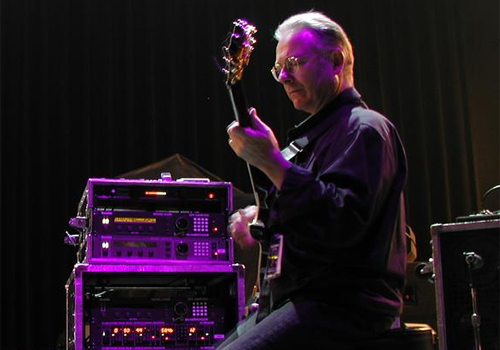 |
| Robert Fripp with his equipment |
Some quick feedback on your thesis!
I've been doing my usual discursive style of reading and found something (not the only thing!) on page 84:
"The individual is both dedicated to its existence in the life-world...and to an unachievable end or telos."To me this statement strains toward the mystery of the cross. And being that Christ is the Word Incarnate, our attempts at communication--more so than any other activity--participate in this mystery. To me this is the critical moment in Camus's Sisyphus, Nietzsche's Yea-Sayer, but most definitively in the person of Christ.
And it's a critical concern of the project, striving toward this totality, especially as we attempt to communicate it. The form that it normally takes is endeavoring to express some transcendent ideal in the midst of perplexity, limitations, insecurities, regrets, and/or constraints (or, in my case, babies and malfunctioning musical equipment). The critical moment, though, is not a "transitional conflict," as Mooney suggests in the context of Kierkegaard's spheres, but rather the very medium through which our transcendence is expressed.
I'm a little more Camusian in my "acceptance" of these mostly frustrating facts; more constant revolt than amor fati, and worlds away from Christ's seven words. But nonetheless I understand that these constraints have been the OCCASION for my self-expression, more so than any Robert Fripp-caliber equipment, a live-in nanny, and life-time tech support on all my electronics.
The cross is where that seemingly impossible reconciliation happens and, inasmuch as we are baptized into that reality, we mystically participate in it, especially when it comes to communication.
Enjoying it by the way!
No comments:
Post a Comment